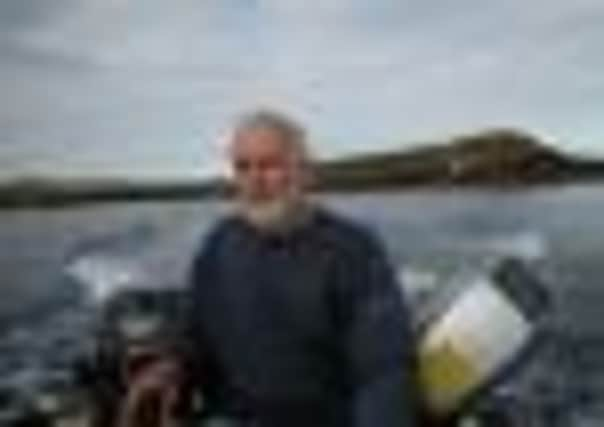Tiny Shetland rock is not a breakaway state, rules judge


Stuart Hill, the self-styled leader of Forvik, is embroiled in a protracted battle to have the rocky outcrop declared an independent republic. He claims that the UK has no legal rights over Shetland and refuses to recognise the authority of state agencies including the Driver and Vehicle Licensing Agency and HM Revenue & Customs.
However, Mr Hill, 68, set aside his belief that Scots law does not apply to him to take his case for £23 million in damages against the Royal Bank of Scotland, to the Court of Session in Edinburgh. Mr Hill, who represented himself, argued that RBS should pay him the money for interest and charges relating to credit card debt.
Advertisement
Hide AdAdvertisement
Hide AdMr Hill was seeking recompense for payments, interest and charges on his credit card totalling £270,933.73 – a sum including compound interest charged at 29.5 per cent a year on payments to RBS dating back to 1996.
He also claimed more than £23 million in “restitution”, and a further £12,200 for fees, which appeared to comprise charges for letters sent at £200 per letter, phone calls at £400 a time and research at £100 per hour.
In a 70-page document presented to the judge, Lord Pentland, Mr Hill went on to outline his claim that Shetland was not a sovereign part of the UK. However Lord Pentland dismissed Mr Hill’s dossier as “irrelevant”, adding that the demand was “null, invalid and of no legal effect”.
The judge pointed to two legal precedents proving that after 1468 the right of sovereignty over the islands belonged to the monarchs of Scotland and later the monarchs of the United Kingdom.
Lord Pentland said: “As to the historical background, it seems to me that it must now be regarded as settled in law that Shetland forms part of the United Kingdom and lies within the territorial jurisdiction of the Court of Session.
“[Mr Hill] urged me to allow a proof at which evidence could be led from historians on the matters discussed in his note of argument, but I do not consider that this would be appropriate.
“There would be no point in having such a proof since it is clear in law that this court has jurisdiction over the defender in the present action and that his arguments to the contrary effect are misconceived.”
Afterwards, Mr Hill appeared unbowed. “The function of the judge, as I understand it, is to listen to the arguments on both sides and then come to a decision,” he said. “My arguments regarding Shetland ran to 71 pages and 140 supporting documents. The other side had just a single document, so you can draw your own conclusions from that.”
Advertisement
Hide AdAdvertisement
Hide AdThe case was not Mr Hill’s first court battle. In December last year, he appeared in Lerwick Sheriff Court charged with driving the van he calls his consular vehicle without tax, MOT or insurance. He was ordered to carry out 100 hours unpaid work and given a six-month driving ban.